Food for Life: The Power of Food for Health
New classes starting soon. Contact debbie@phyto-fit.life for upcoming class schedule.
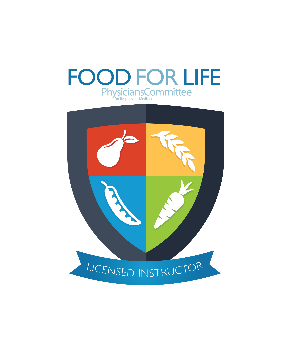
Food for Life is an award-winning nutrition education and cooking class program that provides an innovative approach to diet-related chronic diseases. Since 2001, Food for Life has been a pioneer in delivering hands-on information about the direct role of plant-based nutrition in health and disease prevention to communities around the world.
Designed by physicians, nurses, and registered dietitians, Food for Life promotes healthful eating based on the latest scientific research.
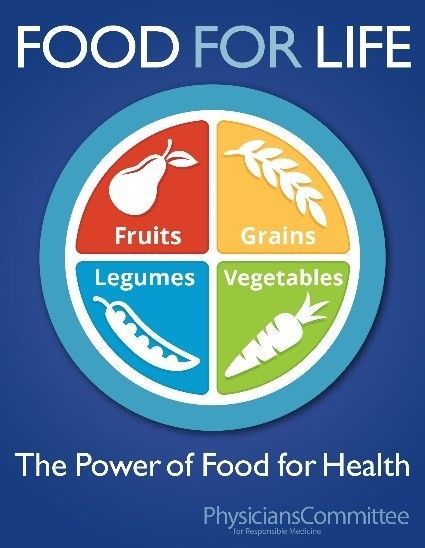
Email now to register for upcoming classes:
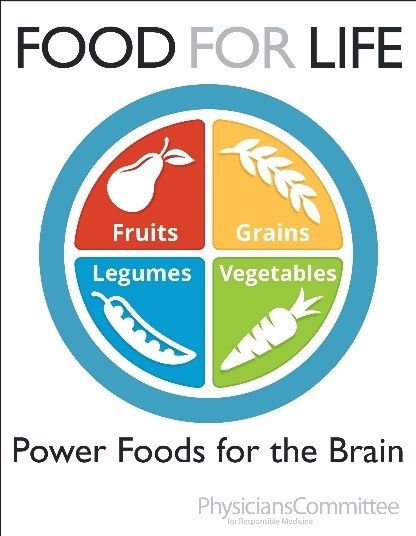
Power Foods for Brain Health:
Plant-based foods are beneficial to the brain and may help prevent Alzheimer’s disease and other forms of dementia. A decline in brain health is not an inevitable part of aging. But how we eat and live can help us protect our memory and stay sharp into old age. Research shows saturated and trans fats found in dairy products, meats, pastries, and fried foods can increase the risk for cognitive decline. Instead, eat a plant-based diet, which helps protect brain health. Berries and foods rich in vitamin E, including nuts, seeds, leafy greens, and whole grains are especially beneficial. Take a B12 supplement to preserve nerve function. But avoid supplements with iron and copper. These metals can harm brain health. Consume iron supplements only when directed by your physician. You’ll also want to choose aluminum-free products including cookware and baking powder.
But diet isn’t your only line of defense. Make sure to lace up those sneakers and exercise regularly and get plenty of sleep for optimal brain health. In this Food for Life: Power Foods for the Brain class, you will learn strategies for maintaining memory and improving brain function including how to prepare brain health-promoting meals.
Your Body in Balance:
Based on the book Your Body in Balance: The New Science of Food, Hormones, and Health by Neal Barnard, MD, FACC, this set of classes addresses hormone-related problems including infertility, hot flashes, diabetes, and depression. Dietary choices have a surprisingly powerful effect on hormones and the problems they cause. The information provided in these classes explains the latest research and offers a new approach to treating, prevention, and even curing many of the most common and persistent health problems.
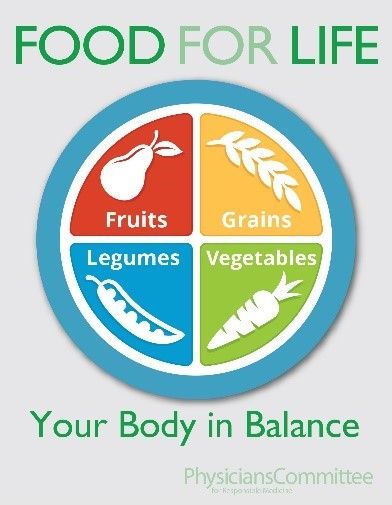
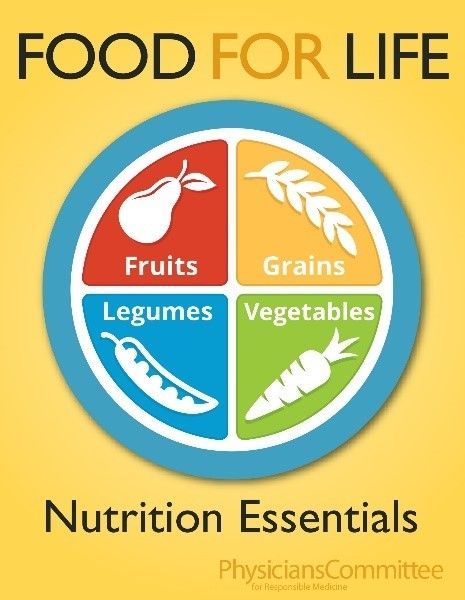
Nutrition Essentials:
Many people nowadays are eager to trim their waistlines, tackle diabetes, or improve their health in other ways. This program presents an engaging and effective way to help them reach their goals. It is based on scientific studies and favors vegetables, fruits, legumes, and whole grains. A vegan or plant-based dietary pattern of whole grains, beans, vegetables, and fruits can help prevent diabetes, cardiovascular disease, cancer, and other chronic diseases. According to the Academy of Nutrition and Dietetics, “Appropriately planned vegetarian diets, including total vegetarian or vegan diets, are healthful, nutritionally adequate, and may provide health benefits in the prevention and treatment of certain diseases.”
Food for Life: Nutrition Essentials is based on the Physicians Committee for Responsible Medicine’s successful 21-Day Vegan Kickstart program. Depending on one’s perspective, Nutrition Essentials is about losing weight, maintaining a healthy weight, or simply embracing an overall healthful way of eating. Much of the basis of the Nutrition Essentials is about making a qualitative shift in the way we eat as opposed to a quantitative shift. For some people, it’s the first time the idea of not restricting amounts of foods but rather choosing the right foods has been the guiding principle for losing weight and staying healthy. The revelation is bolstered with clinical benefits such as lower cholesterol, better diabetes control, and lower blood pressure, as well as improvements in energy and mood. This curriculum will allow class attendees to discover the world of health through general topics ranging from digestion to blood pressure. Results are likely to be immediate and impressive!
21-Day Vegan Kickstart:
A vegan diet of whole grains, beans, vegetables, and fruits can help prevent diabetes, cardiovascular disease, cancer, and other chronic diseases. According to the Academy of Nutrition and Dietetics, “Appropriately planned vegetarian diets, including total vegetarian or vegan diets, are healthful, nutritionally adequate, and may provide health benefits in the prevention and treatment of certain diseases.” This curriculum is based on the Physicians Committee for Responsible Medicine’s successful 21-Day Vegan Kickstart program. Depending on one’s perspective, the Kickstart is about losing weight, maintaining a healthy weight, or simply embracing an overall healthful diet.
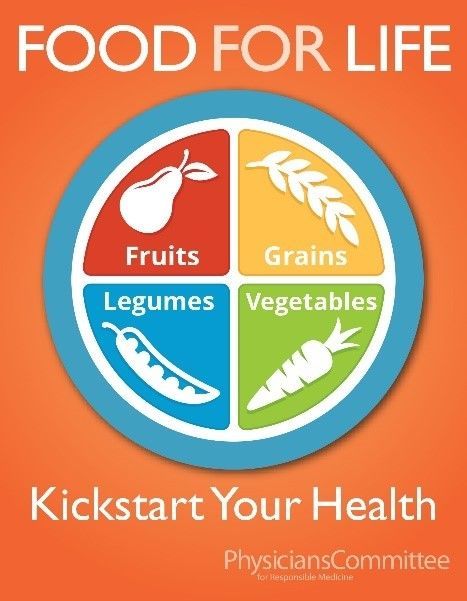
Much of the basis of the Kickstart is about making a qualitative shift in the way we eat as opposed to a quantitative shift. For some people, it’s the first time the idea of not restricting amounts of foods but rather choosing the right foods has been the guiding principle for losing weight and staying healthy. The revelation is bolstered with clinical benefits such as lower cholesterol, better diabetes control, and lower blood pressure, as well as improvements in energy and mood. Food for Life: Kickstart Your Health will allow class attendees to discover the world of health through general topics ranging from digestion to blood pressure. Results are likely to be immediate and impressive!
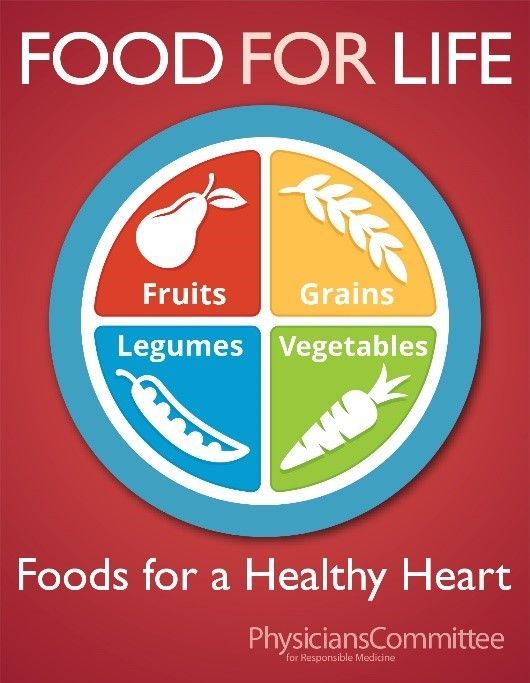
Food for a Healthy Heart:
Research shows a plant-based diet doesn’t just prevent heart disease, but it can manage and sometimes even reverse it. Cardiovascular disease is the leading cause of death in the United States and around the world. Eating habits and other lifestyle factors play a key role in determining the risk of heart disease. Pioneering studies by Dean Ornish, MD, Caldwell Esselstyn Jr., MD, and others have shown a low-fat, plant-based diet, combined with regular exercise and a healthful overall lifestyle, can prevent, delay, and even reverse heart disease and other cardiovascular events. Dr. Ornish’s landmark study tested the effects of a plant-based diet on participants with moderate to severe heart disease. There were no surgeries or stents—just simple diet and lifestyle changes.
Within weeks, 90 percent of chest pain diminished. After just one month, blood flow to the heart improved. After a year, even severely blocked arteries reopened. At the Cleveland Clinic, Dr. Esselstyn tested the same approach on patients with severe heart disease and published similar results. Thirty years later, all of the compliant patients are still thriving. Plant-based diets benefit heart health because they contain no dietary cholesterol, very little saturated fat, and abundant fiber. Meat, cheese, and eggs, on the other hand, are packed with cholesterol and saturated fat, which cause plaque buildup in the arteries, eventually leading to heart disease. A plant-based diet can also help improve several risk factors for heart disease:
- High Blood Pressure: A plant-based diet, rich in potassium, improves blood pressure.
- High Cholesterol: Aim for high-fiber foods, which can help lower cholesterol.
- Atherosclerosis: Diets rich in saturated fat and cholesterol cause plaque buildup in the arteries, restricting blood flow.
- Inflammation: Plant-based diets help reduce inflammation, which can lead to heart disease and other conditions.
Diabetes Initiative:
The Food for Life: Diabetes Initiative is the plant-based nutrition and cooking program for type 2 diabetes prevention and treatment developed by the Physicians Committee for Responsible Medicine. The intended audience for this program is people with diabetes, prediabetes (defined below), a family history or risk factors for developing diabetes, and their adult family members. It is also designed to introduce health care professionals to the basics of plant-based nutrition for preventing and treating diabetes.
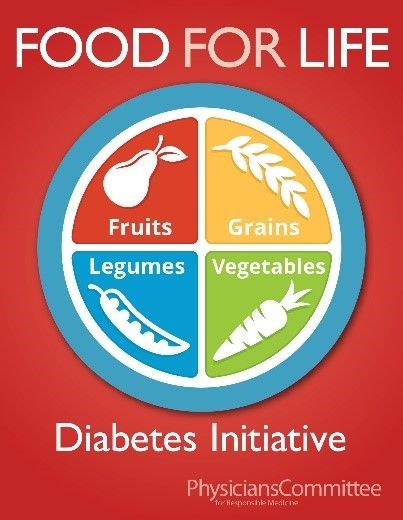
Diabetes is a major public health problem of epidemic proportions. More than 12 percent of the U.S. adult population has diabetes, and more than one-quarter of the population over 65 has the disease.1 One out of four people with diabetes is unaware they have it, which means they are not being treated with a healthy diet or medications.
Uncontrolled, diabetes can lead to complications from head to toe, including stroke, loss of vision, heart disease, kidney failure, and various problems due to nerve damage and circulatory problems, such as erectile dysfunction or lower-extremity amputation. An even greater number of people have prediabetes (impaired fasting glucose, impaired glucose tolerance, or both), which mean they are at high risk for developing diabetes. With prediabetes, blood glucose levels are higher than normal, but not yet high enough to be diagnosed as diabetes.
There are 86 million people in the United States who have prediabetes and they are generally without symptoms. Recent research has shown that some long-term damage to the body, especially the heart and circulatory system, may already be occurring during prediabetes. A blood test is used to diagnose prediabetes. Fifteen to thirty percent of people with prediabetes will develop diabetes within five years. Weight loss can prevent or delay this onset. An astonishing one in three children born in the year 2000 is at risk of developing type 2 diabetes (and one in two African Americans, Native Americans, and Hispanic Americans) in his or her lifetime, unless there are significant changes in diet and activity levels. Fortunately, type 2 diabetes is largely a disease of over-nutrition and sedentary lifestyle. The disease can be prevented, and complications can often be avoided or treated with a significant change in lifestyle.
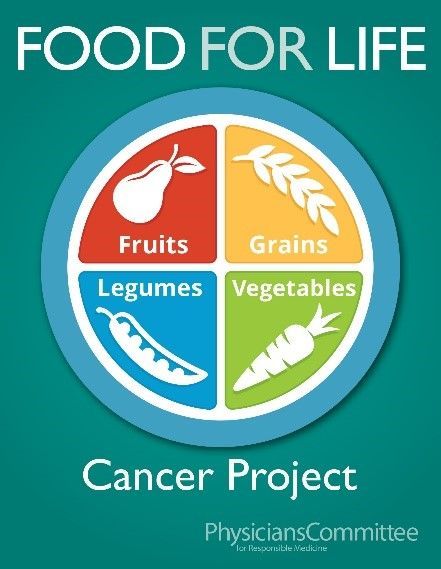
Power Foods for Cancer Prevention & Survival:
More than four decades ago, the United States declared a “war on cancer,” yet current statistics predict that during our lifetime, one in two men and one in three women will develop cancer. This amounts to 1.5 million people being diagnosed with cancer in the United States each year, and cancer causing nearly one-quarter of every death in America. Research has shown that more than one-third of all cancer deaths in the United States are due to poor diet, yet most are unaware of the connection.
Faced with these startling statistics, Physicians Committee for Responsible Medicine developed the Food for Life: Cancer Project curriculum to offer a new direction in battling this disease. The Food for Life: Cancer Project classes include information about how certain foods and nutrients work to promote or discourage cancer growth, along with demonstrations of simple recipes that can be easily recreated at home. The intended audience of the Food for Life: Cancer Project classes are cancer survivors and their family and friends as well as those looking to prevent the disease. These classes are not intended for individuals currently going through cancer treatment.
Healthy Basics:
Diet-related chronic diseases are major threats to Americans. Overweight and obesity now affect the majority of the U.S. population, increasing the risk of diabetes, hypertension, and heart disease and taking a disproportionate toll on under-served populations. Health disparities can be defined as differences in health status among those in varying social or demographic categories, such as race, gender, or income. Illness can even be the cause of
people falling into poverty. However, improved lifestyle choices, especially dietary, need not be reserved for those in a particular income, social, gender, or racial demographic. Eating healthfully can be less expensive than diets fueled by seemingly inexpensive processed products, fast-food products, or nutrient-poor products. The savings can happen in the short term and certainly in the long term, measured not only by dollars but also in quality of life.
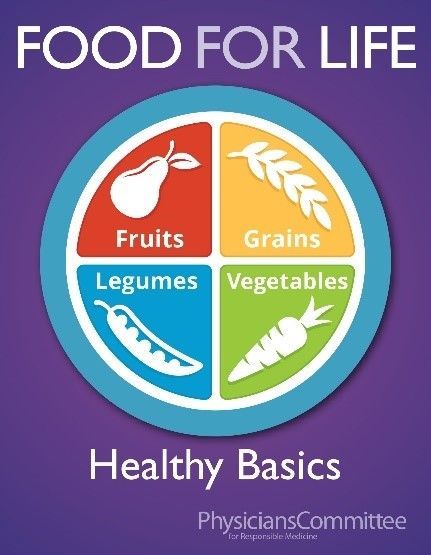
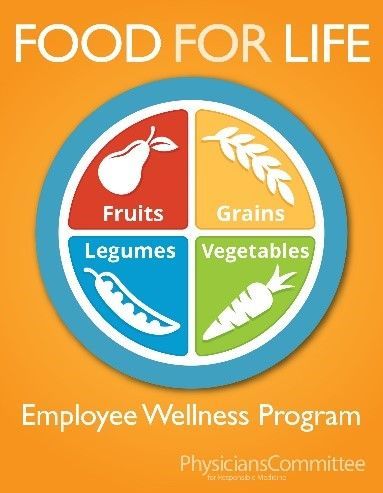
Employee Wellness Program:
A plant-based diet can help prevent diabetes, cardiovascular disease, cancer and other chronic disease. According to the Academy of Nutrition and Dietetics, “Appropriately planned vegetarian diets, including total vegetarian or vegan diets, are healthful, nutritionally adequate, and may provide health benefits in the prevention and treatment of certain diseases.” PCRM’s Employee Wellness Program provides:
- Plant-based nutrition education and cooking classes that include a cooking demonstration, samples of delicious dishes, and supportive group discussion.
- Support for the company’s management on incorporating affordable, healthful choices in the food services
- Resources on assessing the biometrics of the program participants
- Program marketing support
Staff members who participate in the nutrition education classes discover the world of health through general topics ranging from digestion to blood pressure. For some, it’s the first time the idea of not restricting amounts of foods but rather choosing the righ foods has been the guiding principle for losing weight and staying healthy. The revelation is bolstered with clinical benefits such as lower cholesterol, better diabetes control, and lower blood pressure, as well as improvements in energy and mood. Results are likely to be immediate and impressive.
The curriculum is based on the Physicians Committee for Responsible Medicine’s successful 21-Day Vegan Kickstart program and the Food for Life’s Kickstart Your Health curriculum, with introductions to our cancer and diabetes curricula.
Power Food for Fitness:
For centuries, athletes have been following plant-based diets to achieve a competitive advantage. Recently, plant-based diets are gaining popularity in a variety of sports. Perhaps that’s because vegan athletes are leading in endurance sports, weightlifting, and even Formula One racing. However, you don’t have to be a professional athlete to benefit from a plant-based diet. A low-fat vegan diet comprising whole grains, legumes, fruits, and vegetables provides the ideal fuel for any physical activity. It also demonstrates qualities for enhanced recovery over high-fat and animal-based diets. The Food for Life: Food for Fitness class aims to empower attendees with the knowledge and skills needed to prepare simple, nutritious meals that fuel optimal fitness and recovery.
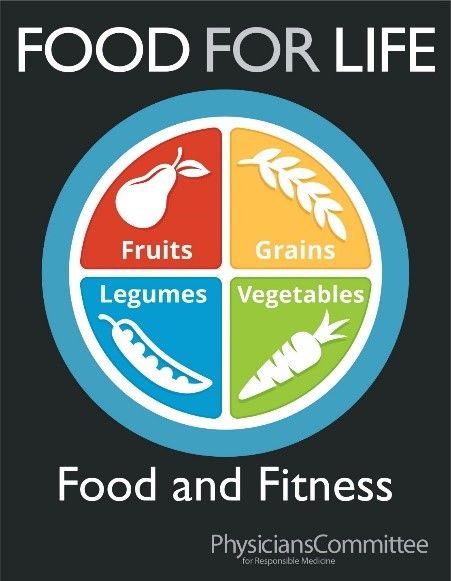
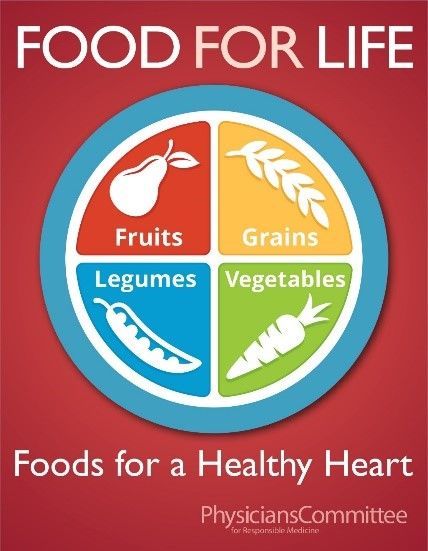
Food for a Healthy Heart:
Research shows a plant-based diet doesn’t just prevent heart disease, but it can manage and sometimes even reverse it. Cardiovascular disease is the leading cause of death in the United States and around the world. Eating habits and other lifestyle factors play a key role in determining the risk of heart disease. Pioneering studies by Dean Ornish, MD, Caldwell Esselstyn Jr., MD, and others have shown a low-fat, plant-based diet, combined with regular exercise and a healthful overall lifestyle, can prevent, delay, and even reverse heart disease and other cardiovascular events.
Dr. Ornish’s landmark study tested the effects of a plant-based diet on participants with moderate to severe heart disease. There were no surgeries or stents—just simple diet and lifestyle changes. Within weeks, 90 percent of chest pain diminished. After just one month, blood flow to the heart improved. After a year, even severely blocked arteries reopened. At the Cleveland Clinic, Dr. Esselstyn tested the same approach on patients with severe heart disease and published similar results. Thirty years later, all of the compliant patients are still thriving. Plant-based diets benefit heart health because they contain no dietary cholesterol, very little saturated fat, and abundant fiber. Meat, cheese, and eggs, on the other hand, are packed with cholesterol and saturated fat, which cause plaque buildup in the arteries, eventually leading to heart disease. A plant-based diet can also help improve several risk factors for heart disease:
- High Blood Pressure: A plant-based diet, rich in potassium, improves blood pressure.
- High Cholesterol: Aim for high-fiber foods, which can help lower cholesterol.
- Atherosclerosis: Diets rich in saturated fat and cholesterol cause plaque buildup in the arteries, restricting blood flow.
- Inflammation: Plant-based diets help reduce inflammation, which can lead to heart disease and other conditions.
Food for Life: Let’s Beat Breast Cancer:
Half a century ago, the United States declared a “war on cancer,” yet current statistics predict that during our lifetime, one in eight women will develop breast cancer. Research has shown that more than one-third of all cancer deaths in the United States are due to poor diet, yet most are unaware of the connection. Faced with these startling statistics, the Physicians Committee for Responsible Medicine developed the Food for Life: Let’s Beat Breast Cancer curriculum based on our groundbreaking Cancer Project curriculum. The first four Let’s Beat Breast Cancer classes include information about how certain foods and nutrients work to promote or discourage growth of cancers of all types (including breast cancer), along with demonstrations of simple recipes that can be easily re-created at home. The final class focuses specifically on foods relevant to breast cancer risk reduction and survival.
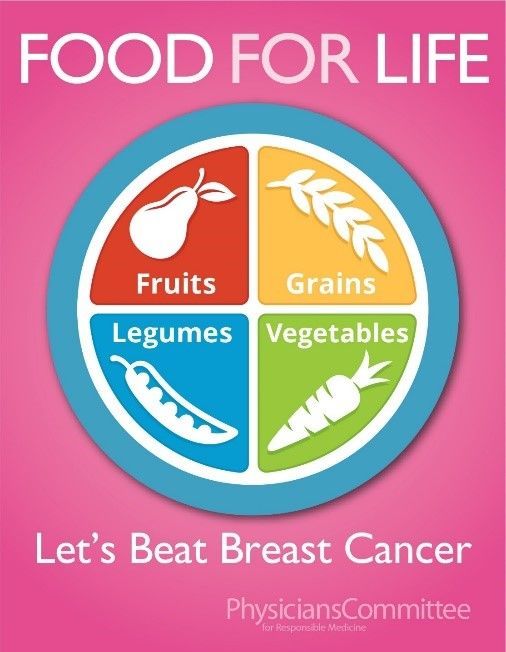
The intended audience of the Food for Life: Let’s Beat Breast Cancer classes are cancer survivors and their family and friends as well as those looking to prevent the disease. These classes are not intended for individuals currently going through cancer treatment
Click here to send a message if you have questions.


